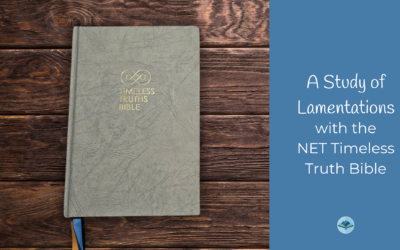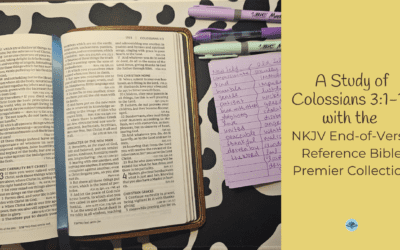Who wrote the Gospel of Luke and who did they write it for?
Luke, a medical doctor and a companion of the Apostle Paul, wrote the Gospel of Luke. The book is addressed to Theophilus, which means “lover of God”. Theophilus could have been a particular person or could represent any Christian or group of Christians. Regardless, this account of the Gospel is written to those who need encouragement in the faith.
When did the events of the the Gospel of Luke happen?
It is likely that Luke wrote both the books of Luke and Acts while Paul was imprisoned in Rome, probably between 59-61 AD. It is also possible that Luke was written later, after AD 70. The events of the book of Luke take place from the birth to the death, resurrection, and ascension of Jesus.
What was the setting of the Gospel of Luke?
No matter when Luke was written, it was intended to encourage Christians and those inquiring about Christ in a time when the Romans believed Christians to be a great political threat to their rule.
What is the purpose of the Gospel of Luke?
- Jesus’ Birth and Early Life (Luke 1-2)
- Preparation for Jesus’ Ministry (Luke 3-4)
- Beginning of Jesus’ Ministry (Luke 5-6)
- Miracles and Teachings of Jesus (Luke 7)
- Teachings about Salvation Through Jesus (Luke 8-9)
- Miracles and Teachings for Christian Living (Luke 10-18)
- Betrayal, Arrest, Crucifixion, Resurrection, and Ascension of Christ (Luke 19-24)
How does the Gospel of Luke apply to my life?
- Focuses on God’s plan to provide the Way for salvation to all people through faith in Jesus Christ.
- Describes Jesus as mankind’s compassionate Healer.
- Emphasizes the Old Testament promises to reinforce that Jesus is the promised Messiah.
- Introduces Jesus’ power, teachings, and ability to resist Satan.
- Explains Jesus’ divine authority with detailed accounts of the miracles Jesus performed.
- Focuses on teachings for the disciples, and future generations of Christians, to encourage them in their faith.
- Gives a detailed account of Jesus’ life, ministry, and works in chronological order.
Grab your printable copy of this study!


Summary
Luke, who was a medical doctor and also a dear friend and companion to the Apostle Paul, wrote this account of the Gospel of Jesus. Luke is not an eye-witness account, but a collection of reports from others compiled together to create a chronological and historical record of the life, ministry, death, and resurrection of Jesus. Being a dear companion to Paul, it is likely Luke also intended this record to help convince Roman authorities that Christians were not a political threat.
The heaviest theme throughout this account encourages both Christians and non-believers in faith. Luke focused on the events of Jesus’ life and ministry in a way that confirms Christ as the One through whom all people, no matter where they come from, who they are, what their background, can find salvation.
No matter when Luke wrote the book of Luke, there was certainly incredible persecution of Christians happening. He was even close with Paul, who was imprisoned multiple times for his work in spreading the Gospel. There would have been a lot of fear of proclaiming faith in Jesus, and great risk involved. Luke does a great job to encourage and help others to understand the person, life, and works of Jesus Christ in his account of the Gospel of Jesus.
The book of Luke is the longest of the four gospel accounts, is the most detailed, and is the only gospel account with a sequel; the book of Acts. Luke, having accompanied Paul on many of his journies, later settled in Philippi. He devoted the rest of his life to the ministry of the Philippian Church.

Have you accepted the grace of God?
If you have not accepted the grace of God and chosen to believe in Jesus Christ as your Lord and Savior, I encourage you to pray to God now and invite Him in, accept Jesus as the sacrifice for your sins, and repent of your sins. Submit it all to God, lay it at His feet, seek the forgiveness of God, welcome Him into your life, and believe that Jesus died and rose again to save you from your sins.
If you would like to learn more about salvation, you can find a couple of studies that may help here:
- Names of Jesus: Savior
- Don’t Neglect Your Salvation
- Prayer of Salvation
- What is grace and why do we need it?
- What does it mean to be justified by grace?
- Don’t Reject God’s Grace
- Don’t Reject Christ
- Godly Women – what it means to live a godly life
- Redeemed Women – what it means to be redeemed
- What is Biblical Love?
- What are Spiritual Gifts?
- How to live in Spirit and Truth
- How to test what is pleasing to God
- Names of Jesus as the Son of God
- Names of Jesus as the Son of Man
- Names of Jesus as the Truth





